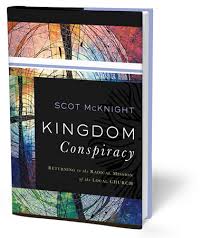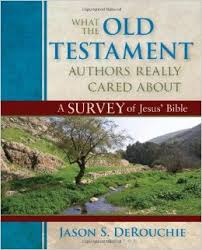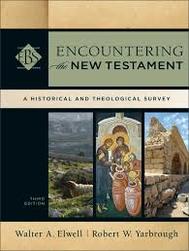|
Here's a sampling of some of the things I've been reading and reviewing this week. The hope is that these bite-sized sections of books, articles, blog posts, etc will stand on their own and be beneficial (or at least thought-provoking!) in-and-of-themselves. But I also hope that some of you will like these excerpts enough that they pull you into the larger work from which they've been taken.
Let's start sampling:
0 Comments
Recently I've begun reading Scot McKnight's recent Kingdom Conspiracy: Returning to the Radical Mission of the Local Church. In his third chapter, "Tell Me the Kingdom Story," McKnight draws our attention to an important (and much discussed) topic, the storyline of Scripture.
This chapter grabbed me for a couple of (overlapping) reasons. First, this topic aligns with a major component of the Brookside Institute Bible Basics class, where we spend three sessions diving into the structure and storyline of the Bible. Second, grasping the storyline of Scripture can transform the way we approach and read Scripture - this topic really is that big of a deal. Therefore, I figured it's worth interacting with Scot a bit here about this topic - both to help me think about it more clearly and to leverage some things Scot says I don't want us to miss. One of the land mines of responsible, healthy biblical interpretation is taking things out of context. Many of us have heard it said that we can get the Bible to say anything we want it to say if we divorce verses from the larger contexts in which they're embedded. In other words, as we read the Bible, understanding the larger context of verses is both important and valuable.
I was reminded of the value of reading things in their larger context earlier this week. We've officially hit the 100 post mark! We've covered a lot of ground over these 100 posts: we've talked a lot about the Bible and theology, book reviews, championing catechesis, teaching tips and more. It's been fun for me to revisit some of these over the last few days and be reminded of where we've been. What I want to do briefly with this 100th post, though, is to keep directing our focus on the ONE THING I want this blog to facilitate - building and reinforcing the foundations of the Christian faith. The reason for this focus is simple: Foundations matter. The growth and stability of anything depends largely on the foundation on which it rests. I still agree with what I wrote in my very first post on this site: Grounding ourselves in foundational truths of the Christian faith will give us a strong foundation...on which we can grow as believers. Reinforcing foundational truths can protect us from shifting soils that threaten the integrity of our faith. As we seek to carry the Christian faith forward faithfully - and pass the baton along to those who will come after us - the thing we need most isn't something new and novel. The thing we need most is a strong foundation. This is the focus I want to maintain and continue to reinforce as we move into our next 100 posts, and continue building foundations that will help you Dig Deep, Learn Good, and Launch Well. I also want to take this opportunity to thank YOU for joining me. Thanks for reading, and for engaging with the material. Whether people have commented directly on this site or contacted me in other ways, I enjoy the interactions! Know that your feedback, contributions, and participation have helped make this site better! Keep it coming! I could benefit from your help as I continue using this blog to build and reinforce foundations of the Christian faith: What are the areas of Christianity that you feel most need reinforcing? What essential foundations would you like to learn more about? Let me know!
Here's a sampling of some of the things I've been reading and reviewing this week. The hope is that these bite-sized sections of books, articles, blog posts, etc will stand on their own and be beneficial (or at least thought-provoking!) in-and-of-themselves. But I also hope that some of you will like these excerpts enough that they pull you into the larger work from which they've been taken.
Let's start sampling: Biblical Studies: Interpreting and Understanding God's WordI read somewhere that Al Mohler, President of Southern Baptist Theological Seminary and prominent evangelical leader, has said "Don't just read books. Build a library." For what it's worth, I agree. The value of building a library is that books can then become long-term "friends" we can carry on a conversation with — not just once, but over the course of time as we turn to them again and again. Books can become reference tools we rely on (and benefit from) repeatedly. Last week, I had the privilege of recommending some books for someone who was starting to build a library of resources for biblical and theological studies. If you're looking to slowly start building a biblical and theological library yourself, here are eight places I'd point you as you begin: (Click on either the book's picture or title to be taken to the Amazon.com page where you can learn a bit more about any of these.)
Watch this short video (less than 2 min) featuring why Francis Chan says we need the Bible - why we need to read it, and hear, and distribute it, and live by it, and treasure it. GOOD STUFF.
Here's a sampling of some of the things I've been reading and reviewing this week. The hope is that these bite-sized sections of books, articles, blog posts, etc will stand on their own and be beneficial (or at least thought-provoking!) in-and-of-themselves. But I also hope that some of you will like these excerpts enough that they pull you into the larger work from which they've been taken.
Let's start sampling: Update, May 2018: Since this post was first written many other superhero movies have been created, and they remain a hit. Though the particular movie(s) mentioned in this post may now be dated, you'll get the gist of things. Superhero movies are big. (Avengers 2: Age of Ultron came out last weekend, and I think I read somewhere that it's the 2nd largest box-office-opening in history. For a couple reviews of the movie from a Christian perspective, check out what Plugged In and Christianity Today have to say.) On a personal note, I'm generally a fan of these movies. I grew up with some of these comic books, and had some of these superheroes as action figures. I applaud many of the themes prevalent in the superhero movies I've seen - themes like sacrifice, service, teamwork, and "with great power comes great responsibility."
Alongside all the recent build-up to the new Avengers movie (and while my wife and I have been watching Season 2 of Marvel: Agents of Shield), I've been teaching a class at Grace University on Trinitarianism, where we spend some time as a class considering the Person and work of the Holy Spirit - including the spiritual gifts (e.g. Romans 12:3-8 and 1 Corinthians 12). Thinking about the spiritual gifts described in the New Testament amidst the buzz about superpowers has led me to reflect on this question: "Are spiritual gifts pretty much like Christian superpowers?" |
Tim WiebeChristian. Husband. Father. Pastor. Learner. Contributor. Reader. Categories
All
Archives
June 2024
|
© 2014-2024 | 11607 M Circle, Omaha NE, 68137 | www.thebrooksideinstitute.net











 RSS Feed
RSS Feed
